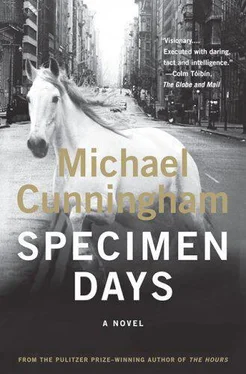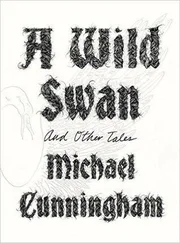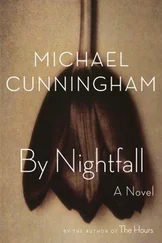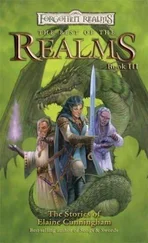Michael Cunningham - Specimen Days
Здесь есть возможность читать онлайн «Michael Cunningham - Specimen Days» — ознакомительный отрывок электронной книги совершенно бесплатно, а после прочтения отрывка купить полную версию. В некоторых случаях можно слушать аудио, скачать через торрент в формате fb2 и присутствует краткое содержание. Город: New York, Год выпуска: 2005, ISBN: 2005, Издательство: Farrar, Straus and Giroux, Жанр: Современная проза, на английском языке. Описание произведения, (предисловие) а так же отзывы посетителей доступны на портале библиотеки ЛибКат.
- Название:Specimen Days
- Автор:
- Издательство:Farrar, Straus and Giroux
- Жанр:
- Год:2005
- Город:New York
- ISBN:0-374-70515-1
- Рейтинг книги:4 / 5. Голосов: 1
-
Избранное:Добавить в избранное
- Отзывы:
-
Ваша оценка:
- 80
- 1
- 2
- 3
- 4
- 5
Specimen Days: краткое содержание, описание и аннотация
Предлагаем к чтению аннотацию, описание, краткое содержание или предисловие (зависит от того, что написал сам автор книги «Specimen Days»). Если вы не нашли необходимую информацию о книге — напишите в комментариях, мы постараемся отыскать её.
Specimen Days — читать онлайн ознакомительный отрывок
Ниже представлен текст книги, разбитый по страницам. Система сохранения места последней прочитанной страницы, позволяет с удобством читать онлайн бесплатно книгу «Specimen Days», без необходимости каждый раз заново искать на чём Вы остановились. Поставьте закладку, и сможете в любой момент перейти на страницу, на которой закончили чтение.
Интервал:
Закладка:
It was the song Lucas had heard at the works. It was lower and more sibilant, it was more difficult to detect, but it was that song, sung in that voice.
And so he knew: Simon was not caught in the machine at the works; he had passed over into a world of machinery. Machines were his portals, the windows he whispered through. He sang to the living through the mouths of machines. Every time his father put his lips to the breathing machine, it filled him with Simon’s song.
Lucas understood now that Mother was not dreaming, not deranged; she heard more clearly than anyone. Simon wanted his people with him. He was alone in a strange land. Hadn’t the Simon-machine taken his sleeve when he was distracted? Hadn’t it tried to pull him from this world into the other?
The dead returned in machinery. They sang seductively to the living as mermaids sang to sailors from the bottom of the sea.
He thought of Catherine.
She would be the main prize. She was Simon’s bride-to-be; he’d want to marry her in his new world if he could no longer do so in the old. He was singing to her, searching for her, hoping she might go to him just as everyone had left Ireland to come to New York.
He ran from the apartment, raced down the stairs. He had to warn her. He had to tell her the nature of the threat.
When he reached the steps of Catherine’s building he stopped. His heart fluttered and raged. He needed to knock at the door, to beg admittance from the tiny woman and see Catherine. But he knew he knew that what he’d come to tell her she would not immediately believe. He understood the strangeness of his news, and he understood that he of all people was suspect, he who was known to be frail and odd, who suffered fits in which he could speak only as the book.
He hesitated. He couldn’t bear, even now, the prospect of going to Catherine, telling her what he knew, and finding her merely remote and kind. If she treated him as a sad, addled boy, if she gave him more food to take to his family, he would fall into a shame so deep he might never return from it.
He stood on the stoop in an agony of unresolve. It came to him that he might bring her something. He need not arrive at her door desperate and penurious. He could come to her with an offering. He could say, I have a present for you. He could give her something rare and wonderful. And then, as she exclaimed over the gift, he could broach his true purpose.
He couldn’t take her the music box, not when it had proved itself a window into the world of the dead. He couldn’t give her the book, either. It wasn’t his to give. Beyond the book and the music box, everything he had, everything his family had, was worn and plain.
He had money, though. He could buy her something.
But all the shops were closed. He went along Fifth Street, past the darkened windows that offered nothing to give as a present even when the shops were open. Behind these windows were meat and bread, dry goods, a cobbler’s stall. Passing the shops, Lucas was aware of their slumbering contents, their beef and boots. He looked through the glass past his own dimly reflected face at the red-and-white haunches hanging against the tiles, at the shelves of silent shoes, at the bottles upon which a mustached man in spectacles was expressing his gratitude for the tonic the bottles held, the same man over and over again, expressing the same pleasure.
Lucas went to Broadway. Something there might be open still.
Broadway might have been a toy for a giant child. It was like a gift to lay before a sultan, a turbaned invader who had refused all other offerings, who had been indifferent to a forest full of mechanical nightingales, who had yawned over golden slippers that danced on their own.
But the shops on Broadway were closed, too. At this hour it was only cafes and taverns and the lobbies of the hotels. He went down Broadway as far as Prince Street, and saw a boy standing at the corner, offering something to those who passed. The boy was ragged, older than Lucas. He wore breeches half again too large for him, cinched with a rope. A limp felt hat, the color of a rat’s pelt, was pulled down over his head. From it a single lock of lank orange hair protruded like a secret he couldn’t keep.
He held in his hand a small white bowl. He displayed it to passersby, who ignored him. Was it an alms bowl? No, it seemed that he was offering it for sale.
Lucas stopped near the ragged boy, who had of course stolen the bowl and was trying to sell it, as people did. Lucas knew how it must be for him. His bowl was a prize, and it was a burden. Something more common would be easier to sell; a turnip, in its way, would be more valuable. The people of the boy’s neighborhood wouldn’t want a thing like the bowl, and those who walked on Broadway might want it but wouldn’t buy it from a boy like this. He extended the bowl to passersby in his outstretched hands with weary hopefulness, like a priest offering the holy cup. Lucas thought the boy had been here a long time, had begun by shouting out a price and had declined, as the hours passed, to this condition of mute resignation.
He approached the boy, looked more closely at the bowl. The boy drew away from Lucas, cradled his prize to his breast. Lucas could see it well enough, though. It was a white china bowl, undamaged. It bore along its rim a band of pale blue figures.
Lucas said, “How much?”
The boy regarded him nervously. He would naturally suspect a trick.
To allay him Lucas said, “I want it for my sister. How much?”
The boy’s eyes were as shrewd and avid as a cat’s. He said, “A dollar.”
A dollar and three pennies was what Lucas had in his pocket. It seemed for a moment that the boy somehow knew that, that he was a sprite who haunted Broadway with his treasure and asked in payment all that everyone had.
Lucas said, “That’s too much.”
The boy compressed his lips. The bowl was worth more than a dollar, and he might get a dollar if he stayed longer on the street, but he was tired, he was hungry, he wanted to go home. Lucas felt a pang of sympathy for the boy, who was wily and cunning, a thief, but who wanted, as everyone did, to be finished with his work, to be restored to himself, to rest.
The boy said, “You can have it for seventy-five cents.”
“That’s still too much.”
The boy settled his mouth. Lucas knew: he would go no further. He was a thief, but he was someone; he had a private realm inside him, and he would not let himself be any poorer than this.
He said, “That’s the last price. Take it or leave it.”
Lucas was filled with sympathy and rage. He knew how much seventy-five cents would mean to the boy. But the bowl had cost him nothing. He could give it to Lucas, who needed it, and in so doing be no worse off than he’d been before. Lucas felt, briefly, the turning of the inscrutable world, in which a bowl that had cost nothing, a bowl he might have stolen himself (though he never stole; he was too nervous for that), would cost him most of what he’d earned by a week’s labor.
He glanced up and down the street, as if he hoped another bowl, or something better, might lie ahead or behind. There was nothing. He might walk all night to find only someone selling a few leeks or a half bottle of ale.
He said, “All right, then.”
He took the money from his pocket and counted out seventy-five cents. He and the boy paused over who would relinquish first and found a way to exchange bowl for coins so that neither was empty-handed. Lucas felt the money taken from him by the boy’s calloused fingers. He felt the bowl settle into his palm.
The boy ran off, fearful that Lucas might change his mind. In a panic, Lucas examined the bowl. Was it false? Had it turned to wood? No, it was in fact a bit of finery. It seemed, in his hands, to emit a faint white light. The figures inscribed along its rim were mysterious. They appeared to be tiny blue suns, icy disks from which rays emanated, finer than hairs.
Читать дальшеИнтервал:
Закладка:
Похожие книги на «Specimen Days»
Представляем Вашему вниманию похожие книги на «Specimen Days» списком для выбора. Мы отобрали схожую по названию и смыслу литературу в надежде предоставить читателям больше вариантов отыскать новые, интересные, ещё непрочитанные произведения.
Обсуждение, отзывы о книге «Specimen Days» и просто собственные мнения читателей. Оставьте ваши комментарии, напишите, что Вы думаете о произведении, его смысле или главных героях. Укажите что конкретно понравилось, а что нет, и почему Вы так считаете.












